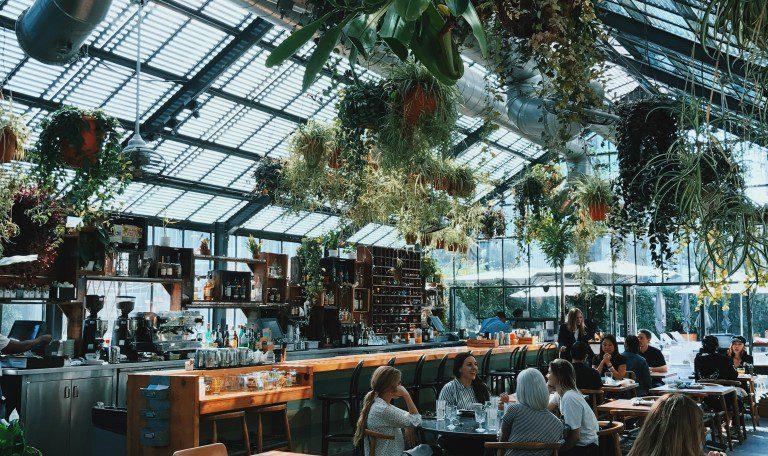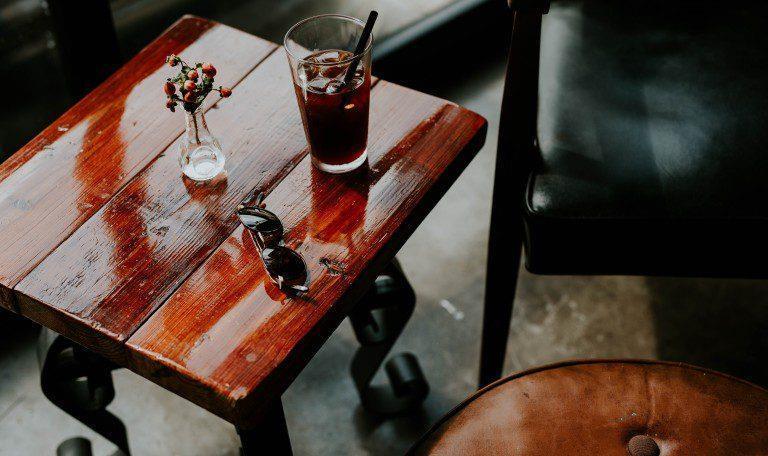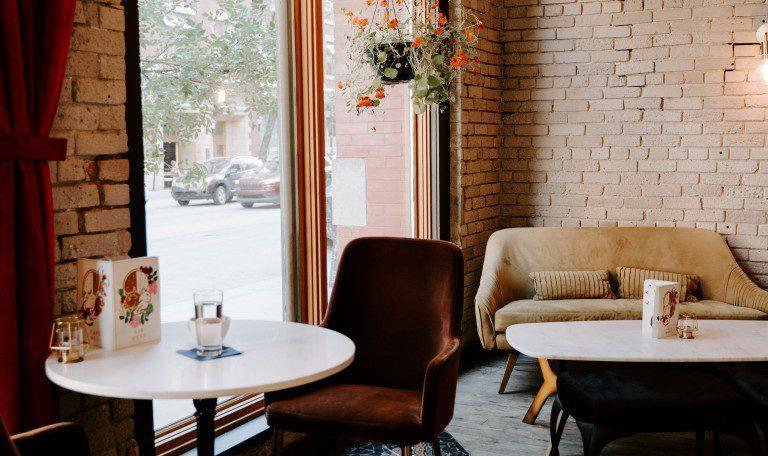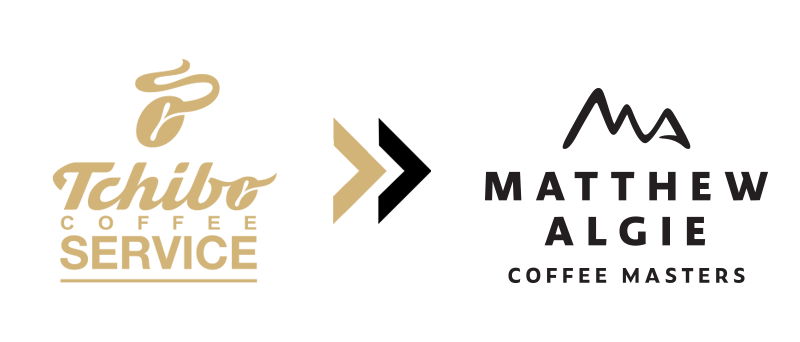Ten tips for how your café can be more circular and sustainable.
October 26th, 2023 | Coffee Industry Insights & Trends
Run a Café? Thinking of revamping it? Or opening a new one? Care about the planet and your customers too?
We got you, with our ten pro tips for how to be more circular and sustainable – and why you should be!
Ah coffee shops… where we gather to sip, gossip and caffeinate ourselves into elation… or oblivion? In today’s world of looming environmental doom, it’s time for a java induced revolution. Grab an ethically sourced oat milk latte and let’s chat about why coffee shops need to lead the charge in sustainability.
Why Coffee Shops? Because every cup counts.
Coffee shops are more than caffeine havens – they’re part of our daily lives. But they also contribute to landfill waste with single-use products like disposable cups, lids, straws and stirrers. But let’s not wallow in despair, here at Matthew Algie we brew hope as well as coffee! Here’s why:
 |
 |
 |
 |
 |
Reducing environmental impact |
Consumer Demand |
Cost Savings |
Positive Brand Image |
Legal and Regulatory Compliance |
| Businesses in the food and drink industry can have a significant carbon footprint. This can be reduced by adopting sustainable and circular practices which reduce their energy consumption and waste production. | Today’s consumers are increasingly conscious of the environmental and social impact of their purchases, cafes that prioritise sustainability and circular practices are more likely to attract and retain customers who appreciate ecofriendly choices. | Many sustainable practices, such as energy efficiency and waste reduction lead to cost savings in the long run. | Demonstrating a commitment to sustainability can enhance a café’s brand image. It signals to customers that it is socially responsible and fosters goodwill and loyalty. | As governments and regulatory bodies increasingly focus on environmental issues, businesses that proactively adopt sustainable practices are more likely to remain compliant with evolving regulations. |
Reducing environmental impact
Businesses in the food and drink industry can have a significant carbon footprint. This can be reduced by adopting sustainable and circular practices which reduce their energy consumption and waste production.
Consumer Demand
Today’s consumers are increasingly conscious of the environmental and social impact of their purchases, cafes that prioritise sustainability and circular practices are more likely to attract and retain customers who appreciate ecofriendly choices.
Cost Savings
Many sustainable practices, such as energy efficiency and waste reduction lead to cost savings in the long run.
Positive Brand Image
Demonstrating a commitment to sustainability can enhance a café’s brand image. It signals to customers that it is socially responsible and fosters goodwill and loyalty.
Legal and Regulatory Compliance
As governments and regulatory bodies increasingly focus on environmental issues, businesses that proactively adopt sustainable practices are more likely to remain compliant with evolving regulations.
Finished that latte? Grab another, because now we’ll tell you how in 10 tips:
1. Second-Hand Chic
Have you ever walked into a cafe and instantly felt at home? Chances are, it’s adorned with unique, second-hand furniture. Hit up thrift stores or browse online marketplaces for furniture that tells stories (and saves the planet too).
2. Waste Not, Want Not
One person’s waste is another’s treasure. Those used coffee grounds can be repurposed into various products, from compost for your local community garden to aromatic candles that fill the air with the comforting scent of coffee to natural scrubbers that keep your café, or face, glowing. Waste is only waste if you let it be!
 3. Plastic-Free Zone
3. Plastic-Free Zone
Single-use plastics are so last century. Banish single-use plastics, opting instead for biodegradable or reusable options for utensils, straws, and takeout containers. Just make sure they’re genuinely compostable – navigating the compostable maze: unearth the real deal, not just another eco-wolf in sheep’s clothing.
Look out for cups made from 100% organic material – like Vegware cups. Better yet contact Vegware and see if they can collect the compostable cups! Or you could even do deals for customers bringing their own mug – selling Keep Cups helps too. If you’ve got to use single use cups– at least make sure they’re 100% paper so they can be recycled properly!
Find out more sustainable cup choices in our other article here.
Also… it’s time to lose the sugar sachets – use an old school sugar dispenser, they never went out of fashion! Convenience doesn’t have to come at the cost of our planet. The ripple effect of such choices can be profound.
4. Local Partnerships
Why go it alone when you can join forces with nearby coffee shops? Together, you can collect and process compostable paper cups, coffee grounds and food waste creating a local recycling ecosystem. It’s like a coffee shop coalition for the environment.
5. Energy Efficiency
Invest in energy-efficient appliances and lighting. Not only will it save you money, but it’ll also make you feel good about lowering your carbon footprint. Think about how you can harness natural light to brighten up your café with clean windows and strategically placed mirrors. Those sunny vibes will keep your customers coming back for more.
6. Sustainable Sourcing
Your coffee beans should be as ethically sourced as your favourite clothing. Choose beans from ethical and sustainable sources, like Matthew Algie’s – we have several triple certified coffees: Fairtrade, Rainforest Alliance and organic. Your coffee will taste even better when you know it’s doing good.
7. Menu Innovation
Diversity isn’t just about people, it’s about your menu too! Offer plant-based milk alternatives and vegan-friendly pastries alongside your regulars. You can also think about ways of reducing the need for paper menus – try a chalkboard, a felt board or a digital menu, although this still uses energy you can add accessibility features for those who are heard of hearing. Sustainability never tasted so inclusive.
8. Minimalistic Decor
Less is more when it comes to sustainable interior design. Use natural materials like reclaimed wood, stone and earthy tones to create that cozy, eco-friendly atmosphere. It’s amazing what you can do with a few wooden pallets or boxes – get creative or let your DIY flare show by upcycling those materials into furniture. It’s all about finding beauty in simplicity.
9. Green Roofs, Green Spaces, and Planters
If you have the space consider adding a green rooftop garden or planters outside your cafe. It could provide fresh herbs for your menu, and local wildflowers and grasses offer numerous benefits to the environment, local wildlife, and the broader biosphere. Plants on green roofs and in green spaces absorb carbon dioxide from the atmosphere, helping to mitigate climate change by reducing greenhouse gas levels. Not only this but green roofs improve insulation and reduce water runoff. Remember that many bought plants are grown in massive greenhouses with large carbon footprints – and nothing beats the feeling of growing your own plants from seed, or even a cutting from a helpful friend. Picture sipping your coffee while surrounded by lush greenery – it’s a breath of fresh air in more ways than one.
10. Educate and Engage
Your cafe isn’t just for sipping lattes; it’s a platform for change. Keep your customers in the know about your sustainability efforts through social media, signs, or even workshops. Learn from them too by asking for feedback – you never know that regular customer might be a sustainability superstar! Also, remember to share your failures – nobody’s perfect, and admitting mistakes shows credibility. Together, you’re brewing change, one latte at a time.




